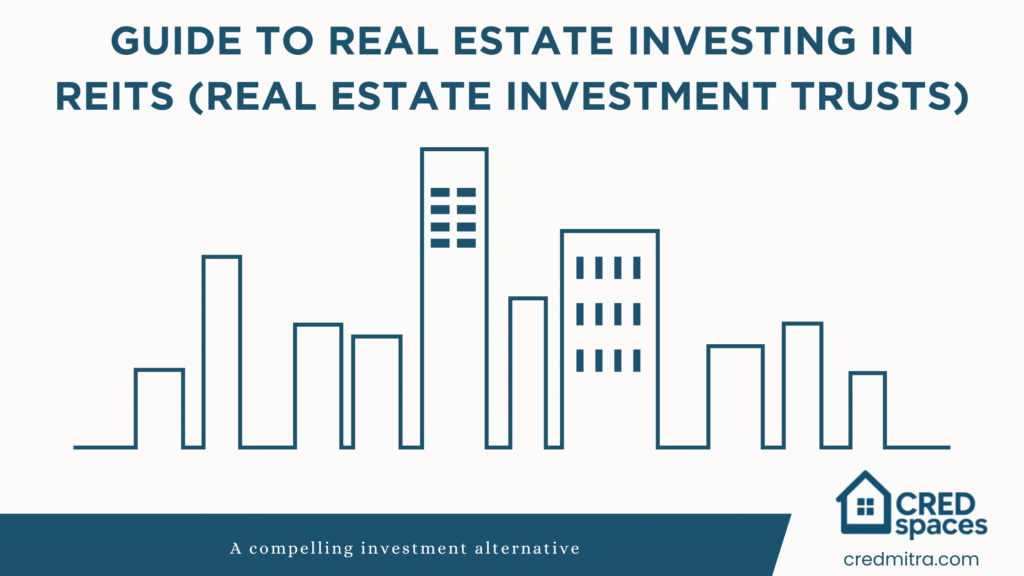
Real estate has long been a favourite asset class for investors seeking capital growth, passive income, and diversification. Yet, directly owning property comes with challenges: high capital requirements, low liquidity, and complex management.
This is where REITs — Real Estate Investment Trusts — emerge as a compelling alternative. They allow investors to participate in income-generating real estate without the hassles of direct ownership. Traded like stocks, REITs combine the stability of real estate with the liquidity of equities.
This guide explains how REITs work, their benefits and risks, and how to approach investing in them, especially within the Indian context.
Market volatility: Use SIPs or staggered investments to average costs.
Rising interest rates: May reduce REIT appeal versus bonds; watch rate trends.
Tenant defaults: Ensure REIT has strong lease lock-ins & diverse tenants.
Regulatory changes: Stay updated on SEBI rules and filings.
Liquidity in private REITs: Prefer listed REITs for easier exit.
– Dividend income: Taxed as per your slab rate.
– Interest income: Also taxed at slab rates.
– Capital gains: Short-term (<3 years) at 15%; long-term (>3 years) at 10% without indexation.
*Consult a tax professional for personalized advice.*
Feature | REITs | Direct Real Estate |
Entry Cost | Low (few thousands) | High (lakhs to crores) |
Liquidity | High (listed) | Low |
Management | Professional | Self-managed |
Rental Income | Regular dividends | Monthly rent |
Diversification | Across properties | Usually single property |
Control | No | Full control |
Tax Efficiency | Moderate | High if structured well |
REITs have transformed real estate investing, making it accessible to everyday investors. They offer an attractive blend of passive income, potential appreciation, and diversification — all with lower entry barriers and better liquidity than owning property directly.
As India urbanises and demand for quality commercial spaces grows, well-managed REITs are poised for long-term success. Do your homework, invest thoughtfully, and let REITs become a powerful component of your wealth strategy. To explore more about REITs, investment planning, and real estate intelligence, visit CREDmitra.